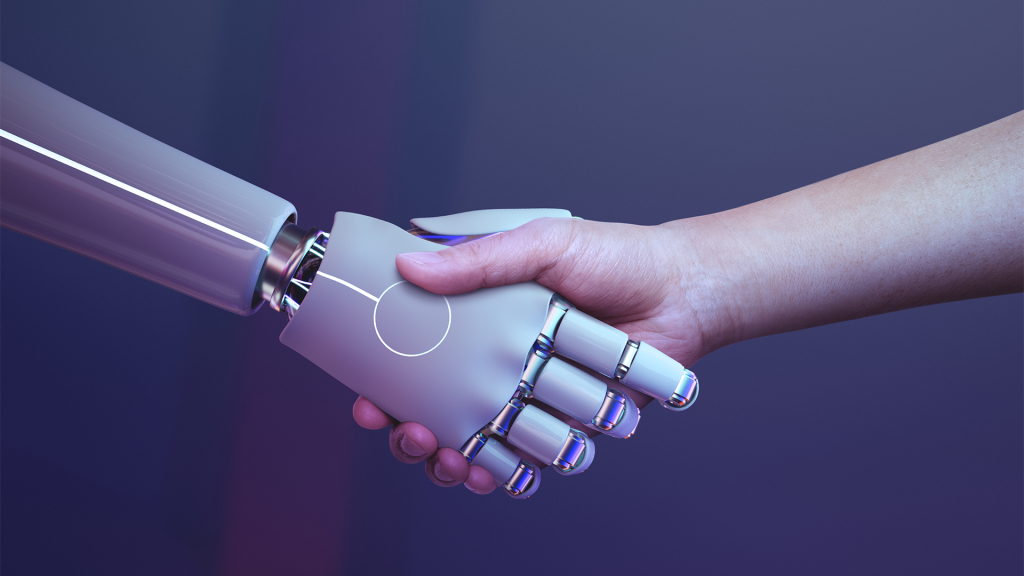ISO/IEC 42001 is a solution that emerges in response to the rapid increase in the use of Artificial Intelligences. With the popularization of AIs like ChatGPT and Midjourney, many companies and professionals have been questioning how to use these tools consciously and ethically, ensuring better results for businesses and improved management of processes involving their use.
Even though these tools are fascinating and can be true technological marvels, their use can involve many risks and potentially cause significant damage to companies. Examples include issues with data privacy and security, biases that can lead to discrimination and wrong decisions, lack of transparency, and even technological dependency.
The good news is that proper management, supported by validated best practices and standards, can turn these risks into growth opportunities and help us use these tools more consciously and organizedly. And this is where ISO 42001 comes in! Let’s understand this story better!
What is ISO/IEC 42001 – Artificial Intelligence Management Systems
First and foremost, ISO/IEC 42001 is an international standard that specifies requirements for establishing, implementing, maintaining, and continuously improving an Artificial Intelligence Management System (AIMS).
This standard is extremely new, having been published in 2023 by ISO (International Organization for Standardization) in association with IEC (International Electrotechnical Commission). Both organizations play an important role in the creation and dissemination of standardization norms and have released numerous standards, such as the well-known ISO/IEC 17025.
According to the standard’s page on the ISO website, this standard “is designed for organizations that provide or use AI-based products or services, ensuring the responsible development and use of AI systems.” Thus, ISO/IEC 42001 represents a significant advancement, being the first standard focused on management in the field of AI!
Benefits and Importance of ISO/IEC 42001
In general, by adopting ISO/IEC 42001, we can ensure that our organizations are using AIs in an ethical, safe, and efficient manner. This aligns with the established strategic positioning and adheres to the best international management practices.
Another factor that makes ISO/IEC 42001 very important is the broad scope of the standard. Firstly, it can be applied to organizations of any size (small, medium, or large) and across any sector. The ISO website even emphasizes that it is “relevant to public sector agencies, as well as nonprofit companies or organizations.” Secondly, it covers all types of purposes, meaning it is applicable to companies that develop AIs, as well as those that supply or use them.
Among the benefits of the standard, we can also cite:
- Ethics and transparency: The standard helps ensure the ethical, conscious, and responsible use of artificial intelligence, ensuring greater transparency and standardization in its use;
- Reputation management: The standard also increases trust in AI applications, as it works to ensure that all factors are properly raised, analyzed, and managed;
- AI governance: The standard supports compliance with legal and regulatory standards, preventing potential illegal use, fines, and sanctions that may be related to the topic;
- Risk-oriented guidance: ISO/IEC 42001:2023 helps manage specific AI risks in a practical and effective manner. This ensures the mitigation or elimination of threats and helps us better leverage potential opportunities;
- Encouragement of improvement: The standard encourages innovation and improvement within an organized and structured system, which not only amplifies improvements but also ensures their greater applicability.
By adopting ISO/IEC 42001 and the instructions contained in the standard, we can ensure that our organizations and employees are using AIs in an ethical, safe, and efficient manner! This is done without losing sight of strategic alignment and its connection to daily operations, all while relying on the best international practices and reinforcing the trust of all stakeholders in the companies!
ISO/IEC 42001: A Guiding Light in Times of Innovation and Uncertainty
The field of study and use of artificial intelligences is still very recent, which has caused some anxiety and fear among many professionals. However, one thing is certain: AIs are here to stay, and their use is likely to increase more and more.
Thus, it is essential to have a standard such as ISO/IEC 42001 – Artificial Intelligence Management Systems. Besides ensuring that AI management is indeed carried out, the standard brings with it best practices discussed and validated by professionals from various parts of the world.
This more holistic factor makes Artificial Intelligence Management Systems a solution not only for individual companies but also for creating a broader, fairer, and more ethical market. For our employees, relying on a standard based on 42001 is a way to understand and correctly use existing AIs, as well as to grasp principles and guidelines for using new tools that are likely to emerge.
Last but not least, implementing an AIMS helps clients (and other stakeholders) better understand the relationship between organizations and artificial intelligences, ensuring that their needs, expectations, rights, and duties are safeguarded by a serious and continuously improving management system.
Thus, implementing ISO/IEC 42001 is not just a smart choice but a vital necessity for any organization that wants to stand out in today’s competitive economic landscape. Very soon, the ability to integrate artificial intelligences into processes (effectively and transparently) will cease to be a “novelty” or a luxury and will become a differentiator that can transform your company into a leader in its segment. Now, dear reader, it is up to you to seize this opportunity, innovate responsibly, and thereby achieve extraordinary results!










